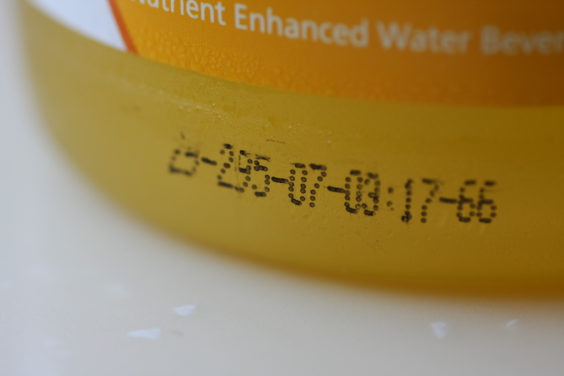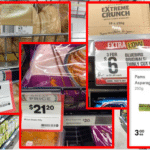
The savviest grocery shoppers know how to hold onto their coupons, wait for a good sale, and then stock up when the price is right. But even the smartest shopper doesn’t always get around to using all of that stockpiled stuff before it reaches its expiration date. So some of those good deals invariably end up in the trash.
European regulators, who have proposed some pretty terrible ideas on how to reduce such food waste, have come up with another idea – one that may or may not be terrible. They’re proposing that manufacturers quit putting “best by” dates on so many products, so consumers stop throwing them away.
Great. Hope you like food poisoning!
Actually, the plan isn’t as bad as it may sound at first. The proposal, discussed at a meeting of European Union agriculture ministers this week, would allow member countries to exempt certain products from mandatory date labeling.
“We would like to start with products you have in your home for a long time, like pasta, rice or coffee,” Dutch agriculture minister Sharon Dijksma told the gathering. “We think citizens can make sure themselves if, for instance, rice is still usable.”
The issue is one of terminology. Turns out the date stamps on groceries are as confusing to Europeans as they are to many Americans. “Best by” is a sometimes arbitrary date that indicates when a product is past its peak freshness – not when it goes bad. “For products with a very long shelf life, such as pasta and rice, it would be better to leave off the best-before date altogether, rather than providing a date that has no meaning at all,” Dijksma said.
The whole point of the plan is to help reduce food waste. The EU estimates that about 15% of all food waste in Europe is caused by people throwing out perfectly good food just because it’s past the “best by” date. That’s costing families more than $800 a year. In the United States, one recent study showed that we toss up to 40% of our entire food supply – $165 billion worth – every year.
The authors of that study proposed a similar overhaul of package date labeling. But British lawmakers, looking for something else to blame for food waste, recently came up with a much worse proposed solution – banning “buy one get one free” deals, so shoppers won’t be tempted to buy more than they need.
That makes the plan to scrap “best by” dates on many products, sound much more reasonable. Still, the idea has its critics.
Certain products may have a very long shelf life, but that doesn’t mean they last forever. What if you found a box of pasta in the back of your pantry without a “best by” date on it? Did it accidentally fall back there from last week’s shopping trip, or has it been there since sometime before the turn of the millennium? Some European government regulators worry that scrapping “best by” dates will actually increase, rather than decrease, food waste. In such a scenario, it may become a case of when in doubt, throw it out – something that a date label could help prevent.
Still another idea would have manufacturers add a production date to the packaging, so you’d know how old a product is, and can make your own determination on when it’s time to eat it or toss it. “People aren’t stupid,” one EU meeting attendee said, “and smarter labeling can advise consumers to better understand when stable foods need to be thrown away, or not.”
Go figure – government regulations that actually allow consumers to use their own judgment! The “best by” proposal may not be a perfect idea, but compared to banning BOGOs, banning coupons on junk food, and banning big sugary soft drinks – it may be the best idea government regulators have come up with in a long time.











here’s an idea–after the best by date has passed, sell the products at a discount to the employees of the store–or donate the products to a food bank
Sell by, Best by and Use by dates are indeed VERY confusing.
Sadly, many consumers interpret these dates as mini time-bombs. Don’t laugh. It’s true.
Take milk, for example. People honestly believe that the milk INSTANTLY goes bad on the EXACT date printed on that jug and immediately toss it. (I know some of these people and you do too-trust me: Contrary to your ‘EU attendee” people really are that stupid.) Yes, the milk mfrs sell millions ad million of gallons of more milk because of this misconception and profits would suffer if it’s changed. But if we really care about waste, maybe a ‘discard by’ date would be more useful.
BTW no matter what measures are adopted-profits will be the 1st to go. So don’t expect mfrs to be over eager to implement these schemes.
I have had to throw some milk out before the best by date!!! So I use my own judgement when it comes to throwing items out. Sometimes it is before the date and more often than not it is after the date.